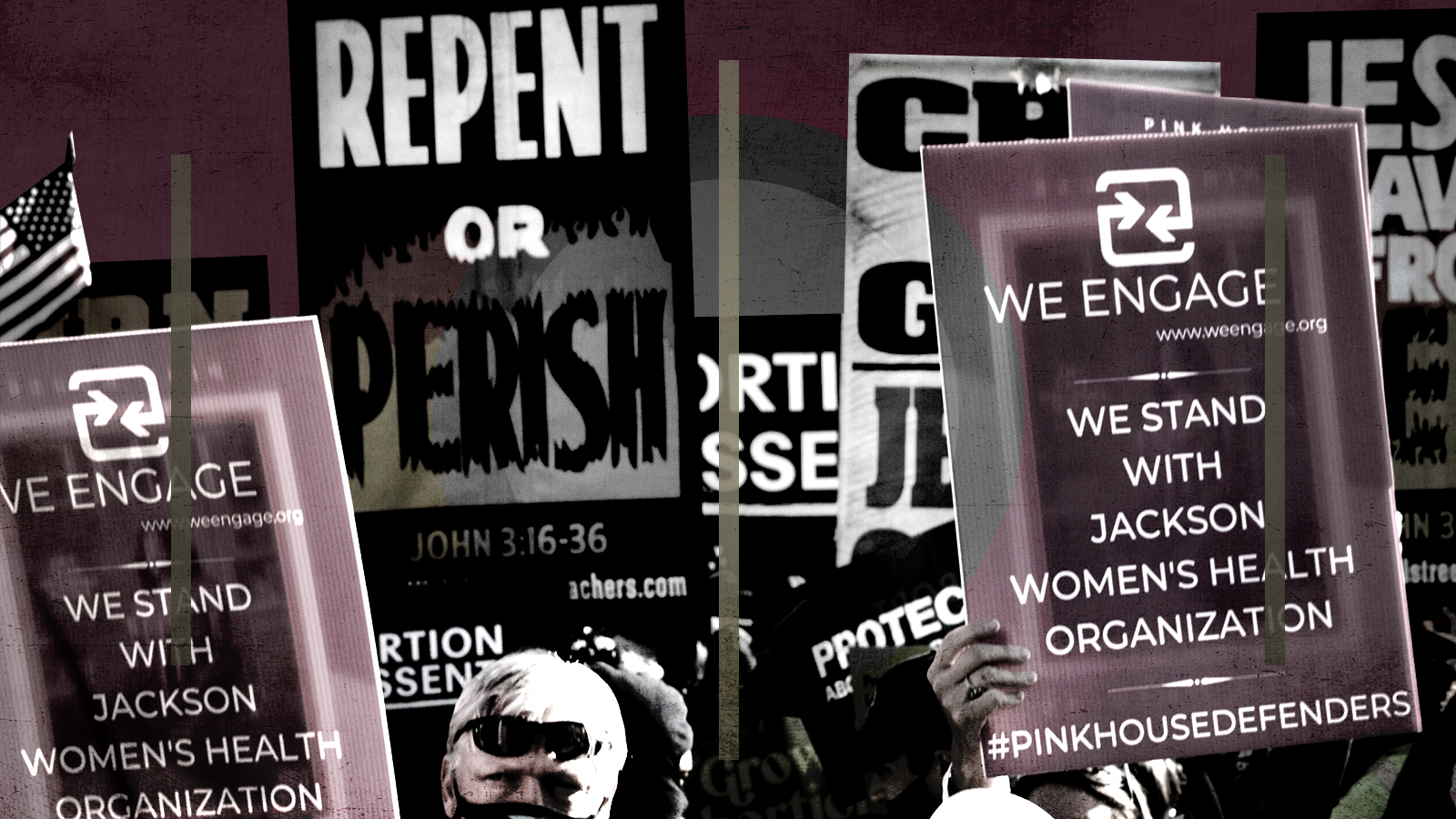The question that may determine the future of abortion rights


A free daily email with the biggest news stories of the day – and the best features from TheWeek.com
You are now subscribed
Your newsletter sign-up was successful
The Supreme Court heard oral arguments Wednesday morning in Dobbs v. Jackson Women's Health, a case with the potential to gut Roe v. Wade (1973) and Planned Parenthood v. Casey (1992), the court's landmark decisions establishing and upholding a constitutional right to abortion. From the tenor of those arguments and the justices' reaction to them, it seems most likely that the court's eventual decision in the case will in fact permit increased restrictions on abortion — and may well overturn its own precedents outright.
The case concerns a Mississippi law that bans abortion after 15 weeks of pregnancy, placing it on a collision course with Casey's ban on placing substantial obstacles in the way of terminating a non-viable fetus. If the law is allowed to stand, this would imply that the court is willing to disregard fetal viability (currently around 23 weeks, though the record is 21 weeks) as the threshold in pregnancy after which the state acquires an overriding interest in protecting the life of the unborn child.
Chief Justice John Roberts seemed to signal interest in a narrower ruling. In questioning Mississippi Solicitor General Scott Stewart, Senior Director of the U.S. Litigation Program at the Center for Reproductive Rights Julie Rikelman, and U.S. Solicitor General Elizabeth Prelogar, he repeatedly focused in on the question of why viability was a more reasonable line for the assertion of such interests than 15 weeks. Roberts may want to decide on that question instead of the much broader one concerning whether Roe and Casey should be overturned.
The Week
Escape your echo chamber. Get the facts behind the news, plus analysis from multiple perspectives.

Sign up for The Week's Free Newsletters
From our morning news briefing to a weekly Good News Newsletter, get the best of The Week delivered directly to your inbox.
From our morning news briefing to a weekly Good News Newsletter, get the best of The Week delivered directly to your inbox.
When it came to this latter (and most monumental) issue, arguments returned again and again to stare decisis, the legal principle that precedents ought not to be overturned lightly. This put the court's liberal justices in the unlikely position of suggesting that prior decisions should stand regardless of their constitutional soundness while the conservative solicitor general of Mississippi and at least some of the court's most conservative justices favored the more radical act of breaking from a precedent that has held for nearly half a century.
Justices Clarence Thomas and Samuel Alito would almost certainly be willing to break from stare decisis to gut abortion rights, with the court's three liberals clearly favoring upholding Roe and Casey. That leaves Justices Roberts, Neil Gorsuch, Brett Kavanaugh, and Amy Coney Barrett as wild cards. It seems clear that all six would allow the Mississippi law to stand, which would eliminate fetal viability as a standard. But in favor of what? Fifteen weeks? But why not 14? Or 13? Or any other arbitrary temporal line following conception?
It's unclear whether Gorsuch, Kavanaugh, and Barrett would be content with the court needing to weigh in every time a state tests a new threshold and making the determination on a seemingly arbitrary basis. What about Roberts? He clearly shares the concern of the court's liberals with the court undermining its own institutional authority by overturning landmark cases. But would the compromise position do even more damage, turning the court into an absolute tribunal judging the validity of every abortion regulation on a piecemeal basis?
That may well be the question that determines the future of abortion rights in the United States.
A free daily email with the biggest news stories of the day – and the best features from TheWeek.com
Damon Linker is a senior correspondent at TheWeek.com. He is also a former contributing editor at The New Republic and the author of The Theocons and The Religious Test.
